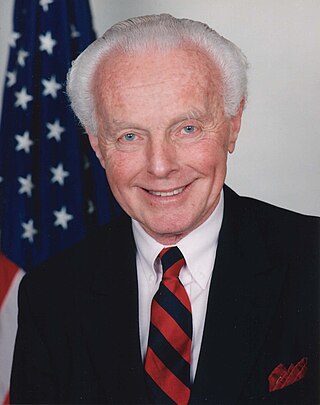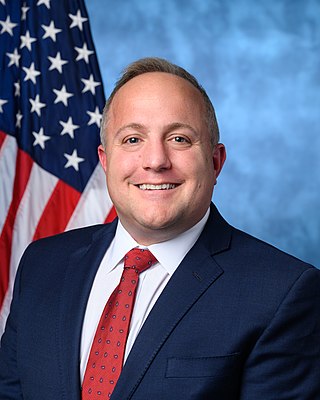Antisemitism is hostility to, prejudice towards, or discrimination against Jews. This sentiment is a form of racism, and a person who harbours it is called an antisemite. Primarily, antisemitic tendencies may be motivated by negative sentiment towards Jews as a people or by negative sentiment towards Jews with regard to Judaism. In the former case, usually presented as racial antisemitism, a person's hostility is driven by the belief that Jews constitute a distinct race with inherent traits or characteristics that are repulsive or inferior to the preferred traits or characteristics within that person's society. In the latter case, known as religious antisemitism, a person's hostility is driven by their religion's perception of Jews and Judaism, typically encompassing doctrines of supersession that expect or demand Jews to turn away from Judaism and submit to the religion presenting itself as Judaism's successor faith—this is a common theme within the other Abrahamic religions. The development of racial and religious antisemitism has historically been encouraged by the concept of anti-Judaism, which is distinct from antisemitism itself.
The Middle East Media Research Institute (MEMRI), officially the Middle East Media and Research Institute, is an American non-profit press monitoring and analysis organization that was co-founded by Israeli ex-intelligence officer Yigal Carmon and Israeli-American political scientist Meyrav Wurmser in 1997. It publishes and distributes free copies of media reports that have been translated into English—primarily from Arabic and Persian, but also from Urdu, Turkish, Pashto, and Russian.

Thomas Peter Lantos was a Hungarian-born American politician who served as a U.S. representative from California from 1981 until his death in 2008. A member of the Democratic Party, he represented the state's 11th congressional district until 1993, and from then the 12th congressional district, which both included the northern two-thirds of San Mateo County and a portion of the southwestern part of San Francisco after redistricting.

Deborah Esther Lipstadt is an American historian and diplomat, best known as author of the books Denying the Holocaust (1993), History on Trial: My Day in Court with a Holocaust Denier (2005), The Eichmann Trial (2011), and Antisemitism: Here and Now (2019). She has served as the United States Special Envoy for Monitoring and Combating Anti-Semitism since May 3, 2022. Since 1993 she has been the Dorot Professor of Modern Jewish History and Holocaust Studies at Emory University in Atlanta, Georgia, US.
New antisemitism is the concept that a new form of antisemitism developed in the late 20th and early 21st centuries, typically manifesting itself as anti-Zionism. The concept is included in some definitions of antisemitism, such as the working definition of antisemitism and the 3D test of antisemitism. The concept dates to the early 1970s.

Christopher Henry Smith is an American politician serving his 22nd term as the U.S. representative for New Jersey's 4th congressional district. Though it has taken various forms, his district has always been situated in central New Jersey. Currently, the district contains parts of Ocean and Monmouth counties. Smith is a member of the Republican Party, having switched from the Democratic Party in 1978.

Kenneth L. Marcus is an American attorney, academic, and government official. He is the founder and leader of the Brandeis Center. He was the Assistant Secretary for Civil Rights at the United States Department of Education from August 6, 2018 through July 9, 2020, after which he resumed his position at the Brandeis Center.

The United States Special Envoy for Northern Ireland is the top U.S. diplomat supporting the Northern Ireland peace process. The position is held by Joe Kennedy III, appointed by President Joe Biden on December 19, 2022.

Ira N. Forman is a former executive director of the National Jewish Democratic Council from January 1996 through June 2010. From May 2013 until January 2017 he served as the United States Special Envoy for Monitoring and Combating anti-Semitism.

The Office of the Special Envoy to Monitor and Combat Antisemitism is an office of the Under Secretary for Civilian Security, Democracy, and Human Rights at the United States Department of State. The office "advances U.S. foreign policy on antisemitism" by developing and implementing policies and projects to support efforts to combat antisemitism.

Hannah Rosenthal is an American Democratic Party political official and Jewish non-profit executive who served as the U.S. Special Envoy for Monitoring and Combating Antisemitism from 2009 until 2012 during the Obama administration.

Rashad Hussain is an American attorney, diplomat, and professor, who currently serves as the United States Ambassador-at-Large for International Religious Freedom. He previously served as associate White House counsel, as U.S. Special Envoy of President Barack Obama to the Organisation of Islamic Cooperation (OIC), and the U.S. Special Envoy for strategic counterterrorism communications. Hussain has also served on the United States National Security Council and in the Department of Justice as a trial attorney and a criminal and national security prosecutor.

The Tom Lantos Human Rights Commission (TLHRC) is a bipartisan body of the United States House of Representatives. Its stated mission is "to promote, defend and advocate internationally recognized human rights norms in a nonpartisan manner, both within and outside of Congress, as enshrined in the Universal Declaration of Human Rights and other relevant human rights instruments."

Elan Sherod Carr is an American lawyer and businessman. He is the CEO of the Israeli American Council. Previously, he was an American attorney and politician who served as the Special Envoy for Monitoring and Combating anti-Semitism under President Donald Trump from 2019 to 2021.
The working definition of antisemitism, also called the International Holocaust Remembrance Alliance definition of antisemitism or IHRA definition, is a non-legally binding statement on what antisemitism is, that reads: "Antisemitism is a certain perception of Jews, which may be expressed as hatred toward Jews. Rhetorical and physical manifestations of antisemitism are directed toward Jewish or non-Jewish individuals and/or their property, toward Jewish community institutions and religious facilities." Accompanying the working definition, but of disputed status, are 11 illustrative examples whose purpose is described as guiding the IHRA in its work, seven of which relate to criticism of the Israeli government. As such, pro-Israeli organizations have been advocates for the worldwide legal adoption of the definition.
The Executive Order on Combating Anti-Semitism, officially Executive Order 13899, is an executive order which was announced on December 10, 2019 and signed the next day by U.S. President Donald Trump. The said purpose of the order was to prevent antisemitism by making it easier to use laws which prohibit institutional discrimination against people based on race, color or national origin to punish discrimination against Jewish people, including opposition to Israel uniquely as a Jewish nationstate without opposition to other nation-states. The definition of anti-Semitism which is used in the executive order was written by the Holocaust Remembrance Alliance, which defines anti-Semitism as, “...a certain perception of Jews, which may be expressed as hatred toward Jews. Rhetorical and physical manifestations of anti-Semitism are directed toward Jewish or non-Jewish individuals and/or their property, toward Jewish community institutions and religious facilities.”

Russell William Fry is an American politician and lawyer serving as the U.S. representative for South Carolina's 7th congressional district since 2023.

Ellie Cohanim is an American broadcast journalist who served as Deputy Special Envoy to Monitor and Combat Anti-Semitism at the United States Department of State during the Donald Trump administration.

Gregg J. Rickman is an American Republican Party official and Congressional staffer. During the 1990s, he was the lead staff member of the U.S. Senate's Swiss bank inquiry. During the George W. Bush Administration, Rickman served as the inaugural U.S. Special Envoy to Monitor and Combat Antisemitism from 2006 to 2009.















